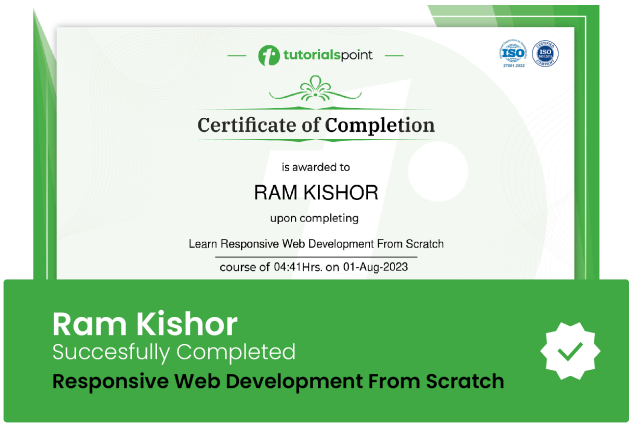Digital Signal Processing (DSP) Training
Learn DSP concepts- Sampling, Filtering, Interpolation, Fourier Theory, Digital Formats, Image, Audio, Video Compression

Lectures -13
Duration -6.5 hours

30-days Money-Back Guarantee
Get your team access to 10000+ top Tutorials Point courses anytime, anywhere.
Course Description
A warm welcome to the Digital Signal Processing (DSP) course by Uplatz.
Digital Signal Processing (DSP) includes evolving protocols and algorithms that can be used to improve a signal in a particular way or extract some useful information from it. Digital Signal Processing is an important branch of Electronics and Telecommunication engineering that deals with the managing of consistency and accuracy of the digital communication by employing multiple techniques. Digital circuits do not suffer from the much limitations. While variations in the section values can slightly change the delay of a CMOS inverter gate, the complete functionality of the gate will be retained. Unlike analog circuits, digital circuits are less vulnerable to component variations. Digital circuits are also more flexible and suited for implementing mathematical functions.
DSP systems executed in either hardware or software programmable DSP processors are categorized by common characteristics. First, data flow/real-time computing corresponds to its analog counterpart in that an output signal is a convolution of an input signal and the impulse response of a given analog linear time-invariant (LTI) system. The convolution is assumed to take infinitesimal time to compute. Because of these DSP common characteristics, many DSP algorithms can be suitably conveyed into the form of nested Do-loops perhaps with an infinite loop bound.
Uplatz offers this end-to-end course on DSP. This Digital Signal Processing course introduces the basic concepts and principles underlying discrete-time signal processing. Concepts will be shown using cases of standard technologies and algorithms. This DSP course also explains the digital signal processing (DSP) system general model and the various functions that it performs. It accepts an analog signal as an input and converts this analog signal to numbers. It also performs computations using the numbers and converts the results of the computations into an analog signal. This DSP course covers extensive explanation of Digital Signal Processing concepts, design for testability, demonstration of a practical DSP application, manipulation of sound using DSP, sampling & filtering, filter realization & implementation, interpolation, decimation, and the like. This DSP training will help you learn modern techniques of image, audio & video compression and will make you aware of the different digital formats.
Digital Signal Processing (DSP) - Course Curriculum
Introduction to DSP
Need for Design for Testability
Simple Application of DSP
Manipulation of Sound using DSP
Sampling & Filtering
Filter Realization
Filter Implementation
Interpolation and Decimation
Fourier Theory
Digital Formats
Audio Compression
Image and Video Compression
Who this course is for:
- DSP - Data Engineers
- DSP/PHY Architects - TDMA, CDMA, OFDMA, 3GPP
- Beginners & Newbies aspiring for a career in Communications technology
- DSP - Product Managers
- Communications DSP Engineers
- Electronics & Embedded Engineers
- Audio & Video Processing Engineers
- DSP Engineers & Senior Engineers
- DSP- R&D Team Leads
- Anyone interested in Signal Processing and Digital
- Senior Engineers - DSP Software
- Technical Lead - DSP Software Development
- RF Design Head Mixed Signal DSP
- Chief System Engineers - DSP FPGA Design
- DSP System Design Engineers
- Embedded Engineers - Software, Hardware, Firmware
- DSP Firmware Developers (Audio & Video)
- 5G NR DSP FW - Principal Engineers
- Engineers - Emulation
- DSP Architects - Physical Layer WCDMA LTE
Goals
What will you learn in this course:
Learn Digital Signal Processing (DSP) concepts in detail
Understand Sampling, Filtering, Interpolation, Decimation processes
Learn the latest compression techniques for Images, Audio, Video
Gain command over Fourier Theory and its application
Understand the technology behind Manipulation of Sound using DSP
Develop a simple Application using DSP
Explain Digital Design for Testability purposes
Prerequisites
What are the prerequisites for this course?
Enthusiasm and determination to make your mark on the world!

Curriculum
Check out the detailed breakdown of what’s inside the course
Introduction to DSP
2 Lectures
-
Introduction to DSP - part 1 38:33 38:33
-
Introduction to DSP - part 2 52:14 52:14
Need for Design for Testability
1 Lectures

Simple Application of DSP
1 Lectures

Manipulation of Sound using DSP
1 Lectures

Sampling & Filtering
2 Lectures

Filter Realization
1 Lectures

Filter Implementation
1 Lectures

Interpolation & Decimation
1 Lectures

Fourier Theory
1 Lectures

Digital Formats & Audio Compression
1 Lectures

Image and Video Compression
1 Lectures

Instructor Details

Uplatz
eCourse Certificate
Use your certificate to make a career change or to advance in your current career.

Our students work
with the Best


































Related Video Courses
View MoreAnnual Membership
Become a valued member of Tutorials Point and enjoy unlimited access to our vast library of top-rated Video Courses
Subscribe now
Online Certifications
Master prominent technologies at full length and become a valued certified professional.
Explore Now


 Updated on May, 2024
Updated on May, 2024
 Language - English
Language - English